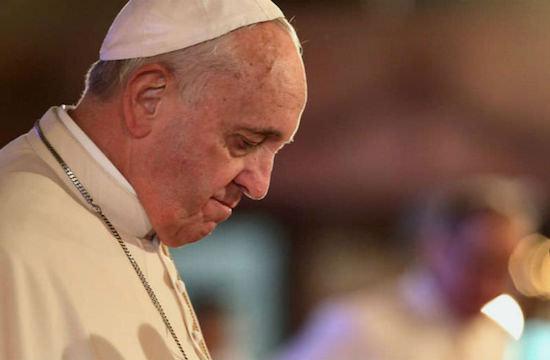|
Softening the pontifical secret
By Kieran Tapsell
The cover up of child sexual abuse was in accordance with 'Secreta Continere' and with a particular interpretation of the Church's supreme law The pontifical secret has been in the news lately because of comments by two of Pope Francis' conservative critics. In his second statement on the McCarrick matter, Archbishop Viganó admitted to breaching the pontifical secret by revealing some of the allegations against the ex-cardinal. In a television interview, Cardinal Muller, the former Prefect of the Congregation for the Doctrine of the Faith cited the pontifical secret when declining to provide details of allegations of child sexual abuse against the late Cardinal Murphy-O'Connor. Muller alleges that Pope Francis ordered him to stop the investigation. Justin Glyn SJ in his article What Canon Law is For (Eureka Street 8 August 2018) writes: 'Rules like the Pontifical secret, for instance, should be read in such a way as to protect the rights of the innocent and avoid false accusations but should not be used to obstruct justice for victims.' That is either a plea for what canon law should be, or it is a benevolent interpretation of the pontifical secret that is not justified by the words of Pope Paul VI's 1974 instruction Secreta Continere, is not consistent with the interpretation of the Roman Curia, and is not consistent with the findings of the Royal Commission. In the Anglo/American civil law system, guidance to interpretation is provided predominantly by judgments in earlier cases, some of which are binding and others persuasive. In canon law, binding interpretation is provided by the legislature, that is, the pope and his authorised delegate, the Pontifical Council for the Interpretation of Legislative Texts. In the absence of such binding rulings, guidance is provided by ‘the jurisprudence and practice of the Roman Curia.' From 1997 to 2002, five senior canon lawyers from the Roman Curia stated that bishops should not report child sexual abuse allegations against clergy to the civil authorities, two of them stating expressly that it breached canon law. None of these Curia officials or their successors have resiled from that interpretation of the pontifical secret. A letter of 22 February 2013 from the Congregation for the Doctrine of the Faith to the Australian Catholic Bishops Conference, advising it that clauses in its Towards Healing protocol for mandatory reporting to the civil authorities should not apply to clergy, is consistent with that interpretation. Fr Glyn further writes: 'None of this suggests that canon law as it currently exists is perfect or measures up to justified community expectations…The absolute terms in which the Pontifical secret is currently expressed (prohibiting any reporting of cases in ecclesiastical courts while the cases are in progress) is an example.' The pontifical secret applies not just when such cases are in progress, but forever. It not only covers the information revealed in a canonical trial, but the allegation itself. The Royal Commission strongly recommended that it be abolished or amended to allow unfettered reporting of abuse to the civil authorities and not just where there are civil reporting laws. Confidentiality in legal proceedings is sometimes desirable. Cardinal Pell's trial is being held in secret, and for good reason. With modern means of communication, it is virtually impossible to prevent jurors from having access to commentary outside of the court room. However, once those trials are over, there will be public access to the evidence with suitable pseudonyms or redactions to protect the identities of witnesses, where that is appropriate. Canon law, however, requires a permanent silence over everything, even the decision itself. There is another difference between canon and civil law. The final canon of the Code (C.1752) says that the supreme law of the Church is the 'salvation of souls.' The Royal Commission found that the motivation behind the pontifical secret was the avoidance of scandal. As Archbishop Hart told the Victorian parliamentary inquiry, 'scandal' has a special meaning in the Church. It means the loss of faith when 'a person who is supposed to act in the place of Christ acts in the very opposite and this causes people a loss of faith.' Faith, in the Church's theology, is the key to the salvation of souls. The cover up of child sexual abuse was in accordance with Secreta Continere, and with a particular interpretation of the Church's supreme law. It is understandable that canonists would try to find a kinder interpretation for the pontifical secret, given that the cover up caused more children to be abused, but in the canonical system, you cannot get away from the plain meaning of the words and the interpretation placed on them by the Roman Curia. One can only hope that after the meeting of the heads of Catholic Bishops' Conferences in February 2019, Pope Francis adopts the recommendation of the Royal Commission on the pontifical secret, the same recommendation made in 2014 by the United Nations Committees for the Rights of the Child and against Torture and which Pope Francis rejected.
|
.
Any original material on these pages is copyright © BishopAccountability.org 2004. Reproduce freely with attribution.
